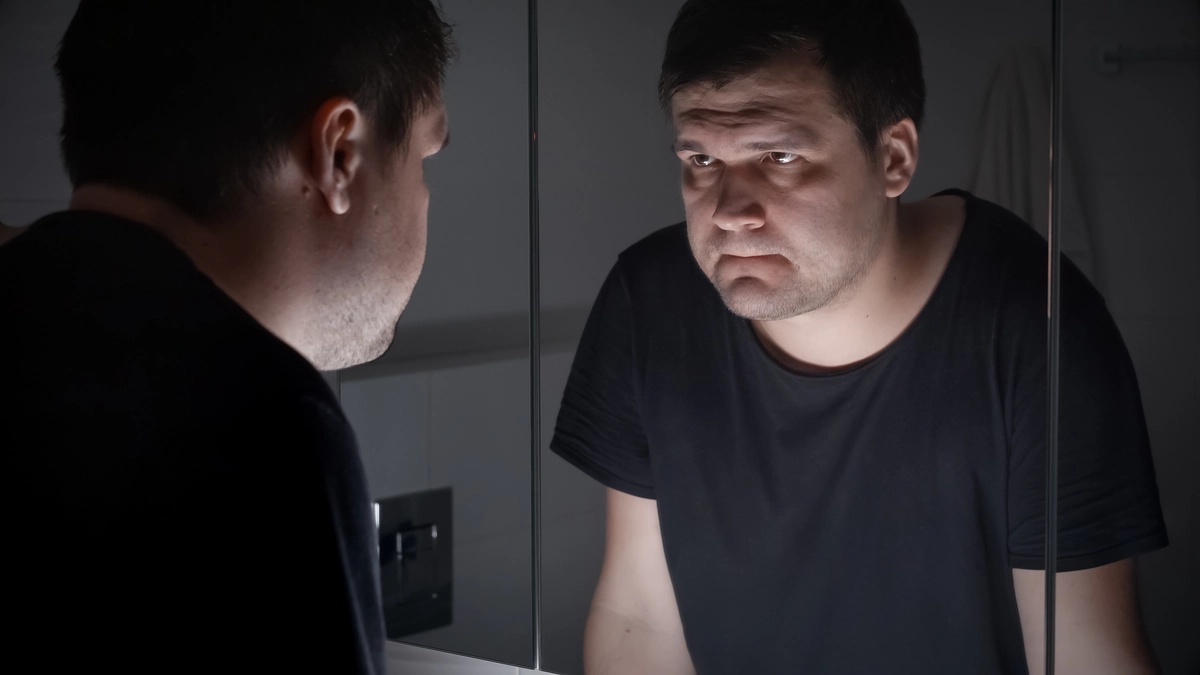Simple Schizophrenia: The Symptoms, Treatment, and More


Unraveling the complexities of mental health, simple schizophrenia stands in stark contrast to its name. Despite the term "simple," this condition poses intricate challenges for those affected. Understanding the nuances and impact of simple schizophrenia is crucial in providing appropriate support and care to individuals navigating this form of schizophrenia.
Understanding the Basics: What Is Simple Schizophrenia?
Simple schizophrenia, also known as schizophrenia simplex, is characterized by a gradual decline in cognitive functioning. This subtype of schizophrenia was historically classified based on the absence of prominent hallucinations or delusions. Despite its name, simple schizophrenia is far from "simple" in its impact on individuals' lives.
Individuals with this mental disorder often exhibit negative symptoms such as social withdrawal, apathy, and reduced emotional expression. Unlike other forms of schizophrenia, simple schizophrenia does not typically present with the hallmark symptoms of hallucinations or delusions. Instead, it primarily manifests as a slow erosion of cognitive abilities and social skills over time.
Changing Diagnosis
In the past, simple schizophrenia was recognized as a distinct subtype within the broader spectrum of schizophrenia. This classification was based on observations that some individuals displayed chronic and insidious deterioration in their mental faculties without experiencing the more dramatic psychotic symptoms seen in other forms of the disorder.
However, modern psychiatric classifications have moved away from this specific distinction due to overlapping symptomatology among different subtypes.
Importance of Awareness
The negative symptoms associated with simple schizophrenia can have a profound impact on an individual's quality of life. Apathy, social withdrawal, and lack of motivation can lead to difficulties in maintaining relationships, holding down jobs, and engaging in daily activities. These challenges can result in significant social isolation and functional impairment.
One distinguishing feature of simple schizophrenia is the gradual deterioration of functioning that occurs over time. Unlike acute episodes seen in other forms of schizophrenia, individuals with simple schizophrenia may experience a slow but steady decline in cognitive abilities and social skills. This insidious progression can make it challenging for both individuals and their loved ones to recognize the signs early on.
In some cases, symptoms of simple schizophrenia may manifest early in life, with onset occurring during childhood or adolescence. This early presentation underscores the importance of early detection and intervention to prevent further decline and improve long-term outcomes for individuals affected by this subtype of schizophrenia.

Recognizing the Signs of Simple Schizophrenia
Recognizing simple schizophrenia is crucial for timely intervention and treatment. Understanding its symptoms can significantly impact an individual's quality of life. By acknowledging these signs, individuals can seek help promptly, leading to better outcomes.
Symptoms of simple schizophrenia include:
Disturbances in Perception and Thought Processes
Individuals with simple schizophrenia may experience hallucinations, delusions, and disorganized thinking. They may have difficulty distinguishing reality from fantasy.
Negative Symptoms
These include a lack of motivation, social withdrawal, reduced emotional expression, and poor self-care. These symptoms can significantly impact an individual's ability to function in daily life.
Cognitive Impairments
Individuals with simple schizophrenia may also experience difficulties with memory, attention, and problem-solving. These cognitive impairments can impact an individual's ability to complete tasks and make decisions.
Emotional Changes
Mood swings, anxiety, and depression are common among individuals with simple schizophrenia. These emotional changes can be triggered by the experience of hallucinations and delusions.
Early Detection
The significance of recognizing and understanding simple schizophrenia lies in the early detection of symptoms. Awareness allows for timely intervention, which can prevent the condition from worsening. Moreover, early recognition enables healthcare professionals to provide appropriate treatment and support.
Destigmatizing simple schizophrenia in society is essential for promoting acceptance and understanding. By raising awareness and educating the public about this condition, individuals with simple schizophrenia can feel more supported and accepted in their communities. Breaking down stereotypes and misconceptions is key to creating a more inclusive environment.
Early Warning Signs
Specific symptoms differentiate simple schizophrenia from other forms of the disorder. Avolition, characterized by a lack of motivation or interest in activities, is a common symptom. Apathy, where individuals show reduced emotions or lack of enthusiasm, is another key indicator. Anhedonia, the inability to experience pleasure from activities once enjoyed, is also prevalent in simple schizophrenia.
Identifying Symptoms
Identifying these symptoms early on is crucial for accurate diagnosis and effective management. Avolition, apathy, and anhedonia are often subtle at first but can progressively worsen if left untreated. Recognizing these warning signs promptly can lead to a quicker diagnosis and implementation of appropriate interventions.
Early detection plays a vital role in the diagnosis process of simple schizophrenia. Subtle signs such as social withdrawal or changes in behavior may indicate the onset of the condition. Recognizing these initial indicators allows healthcare providers to intervene sooner, offering individuals with simple schizophrenia the best chance at managing their symptoms effectively.
How Is Simple Schizophrenia Diagnosed?
Recognizing subtle signs that may indicate simple schizophrenia is crucial for prompt intervention. Changes in behavior, social interactions, or daily routines could signal the presence of the disorder. By being vigilant and observant of these cues, individuals can seek professional help early on.
Understanding the importance of recognizing early warning signs is paramount in addressing simple schizophrenia effectively. Timely intervention not only aids in diagnosing the condition but also ensures that appropriate treatment strategies are implemented promptly. Early detection significantly improves long-term outcomes for individuals living with simple schizophrenia.

Are You Struggling with Mental Health or Addiction?
We Can Help. Call Us Now!
CALL: 877-839-1772
Treating Simple Schizophrenia
A comprehensive treatment plan is essential to manage the symptoms of simple schizophrenia effectively. The goal of treatment is to reduce symptoms, improve functioning, and prevent relapse.
Psychotherapy
Cognitive behavioral therapy (CBT) can help individuals with simple schizophrenia by challenging distorted thinking patterns and teaching coping mechanisms for managing symptoms.
Family Education and Support
Involving family members in the treatment process can improve communication and reduce stressors for individuals with simple schizophrenia. Family education programs can also provide support and resources for caregivers.
Therapy Types
Simple schizophrenia shares similarities with other forms of the disorder in terms of symptoms and diagnostic criteria. These similarities can include hallucinations, delusions, and disorganized thinking. Recognizing these commonalities is crucial for accurate diagnosis.
Understanding the overlapping symptoms across different subtypes of schizophrenia helps in developing personalized treatment plans. By identifying shared characteristics, healthcare providers can tailor therapy approaches to suit individual needs.
Recognizing these similarities can also aid in determining the most effective therapeutic interventions for simple schizophrenia. The goal is to address specific symptoms while considering the overall impact on an individual's mental health.
Medication Use
In treating simple schizophrenia, medication plays a vital role in managing symptoms such as hallucinations and delusions. Antipsychotic medications are commonly prescribed to help control these symptoms.
Medication usage should be closely monitored by healthcare professionals to ensure effectiveness and minimize potential side effects. Adjustments may be necessary based on an individual's response to the medication over time.
In addition to antipsychotic medications, other drugs may be prescribed to address specific symptoms or co-occurring conditions. It is essential for individuals with simple schizophrenia to follow their prescribed medication regimen consistently.
Lifestyle Adjustments
Alongside therapy and medication, lifestyle adjustments can significantly impact the management of simple schizophrenia. Regular exercise, a balanced diet, and sufficient sleep play crucial roles in overall well-being.
Engaging in social activities, hobbies, and support groups can also help individuals cope with the challenges of living with simple schizophrenia. Establishing a routine and setting achievable goals are beneficial strategies for maintaining stability.
Maintaining open communication with healthcare providers, family members, and caregivers is essential for ongoing support and guidance. Creating a supportive environment can contribute to better treatment outcomes for individuals with simple schizophrenia.
What Causes Simple Schizophrenia?
The exact cause of simple schizophrenia is unknown, but research suggests a combination of genetic, environmental, and neurobiological factors. Some studies have identified a link between childhood trauma and the development of this condition.
How Does It Develop?
Simple schizophrenia may develop due to genetic predisposition combined with environmental triggers like childhood trauma or stress. Environmental factors such as family dynamics, urban upbringing, and socioeconomic status can influence the onset of simple schizophrenia symptoms. Treatment for simple schizophrenia should be comprehensive, addressing both genetic vulnerabilities and environmental stressors.
Neurobiological Factors
Abnormalities in brain structure and function have been found in individuals with simple schizophrenia. These abnormalities can impact cognitive functioning and contribute to symptoms of the condition.
Exploring Origins
The diagnosis criteria for simple schizophrenia have evolved over time. Initially described by Eugen Bleuler in 1911, it was later revised by Kurt Schneider in 1950. These criteria focused on fundamental symptoms like affective flattening and ambivalence. The transition from ICD-10 to ICD-11 brought significant changes. ICD-11 emphasizes the core symptoms of schizophrenia, including delusions and hallucinations, for a more accurate diagnosis.
Challenges arise in diagnosing simple schizophrenia due to its unique symptom profile. Unlike other types of schizophrenia, individuals with simple schizophrenia exhibit fewer positive symptoms like hallucinations or delusions. Instead, they primarily display negative symptoms such as social withdrawal and apathy. This subtlety can lead to misdiagnosis or delayed treatment interventions.
Genetic Factors
Simple schizophrenia's origins are multifaceted, involving both genetic and environmental factors. Genetic predisposition plays a crucial role in the development of this condition. Studies suggest a connection between placental-fetal transfer of infection and intellectual subnormality, contributing to the risk of developing simple schizophrenia.
The progressive nature of simple schizophrenia underscores its impact on individuals' lives. As the disorder advances, individuals may experience worsening cognitive functioning and social impairments. This progression highlights the importance of early intervention strategies to mitigate the long-term effects on affected individuals.
Environmental Influences
Genetic factors alone do not determine an individual's susceptibility to simple schizophrenia; environmental influences also play a significant role. A combination of genetic predisposition and environmental triggers can increase the likelihood of developing the disorder. Factors such as prenatal stress, childhood trauma, or substance abuse can exacerbate genetic vulnerabilities.
How Causes Interact
The interaction between genetic predisposition and environmental influences shapes the onset and course of simple schizophrenia. Understanding these complex interactions is crucial for providing comprehensive care to individuals with this condition. Genetic counseling is essential for those with a family history of schizophrenia to assess their risk factors and implement preventive measures effectively.
Are You Struggling with Mental Health or Addiction?
We Can Help. Call Us Now!
CALL: 877-839-1772
Comparing Schizophrenia Types
Simple schizophrenia is a subtype of schizophrenia, a mental disorder characterized by delusions, hallucinations, and disorganized thinking.
Key Differences
In contrast to paranoid schizophrenia or disorganized schizophrenia, simple schizophrenia is characterized by a lack of prominent positive symptoms. The unique symptom profile of simple schizophrenia includes social withdrawal, apathy, and lack of motivation rather than hallucinations or delusions. Diagnosis and treatment strategies must consider these differences to provide effective care tailored to each subtype.
Similarities Noted
The distinguishing feature of simple schizophrenia lies in the absence of positive symptoms like hallucinations or delusions. This absence sets it apart from other forms where positive symptoms are more prevalent, impacting the overall prognosis and treatment efficacy. Understanding these differences is crucial for accurate diagnosis and personalized treatment planning.

Simple Schizophrenia & Its Effects on Daily Life
The effects of simple schizophrenia can be devastating, especially if it’s untreated:
Personal Impact
Living with simple schizophrenia can have profound effects on an individual's personal life. The constant battle with hallucinations and delusions can lead to severe effects on one's sense of self. Individuals may struggle with maintaining relationships and performing daily tasks due to the symptoms of this condition.
The impact of simple schizophrenia extends to one's emotional well-being, causing feelings of fear, confusion, and isolation. These individuals often face challenges in expressing their emotions and thoughts coherently, leading to difficulties in communicating effectively with others. The persistent presence of hallucinations can disrupt their perception of reality, further exacerbating their emotional distress.
Social Consequences
The social consequences of simple schizophrenia are far-reaching and can significantly impact an individual's relationships and interactions within society. Due to the stigma surrounding mental health conditions, individuals with simple schizophrenia may face discrimination, judgment, and social exclusion. This can further isolate them from their support systems and hinder their ability to seek help.
Hallucinations
Moreover, the symptoms of simple schizophrenia, such as auditory hallucinations or paranoid delusions, can lead to misunderstandings and conflicts in social settings. These misunderstandings may strain relationships with family members, friends, or colleagues, creating barriers to forming meaningful connections and fostering a sense of belonging within the community.
Coping Mechanisms
Individuals diagnosed with simple schizophrenia often rely on various coping mechanisms to navigate the challenges posed by this condition. Seeking professional help from mental health professionals is crucial for managing symptoms and developing effective coping strategies. Therapy sessions, including cognitive-behavioral therapy (CBT) or supportive therapy, can help individuals better understand their symptoms and learn how to cope with them.
Self-Care
Engaging in self-care practices such as regular exercise, adequate sleep, healthy eating habits, and mindfulness techniques can also contribute to improving overall well-being and reducing stress levels. Building a strong support network comprising understanding family members, friends, or support groups can provide emotional support and encouragement during difficult times.
Are You Struggling with Mental Health or Addiction?
We Can Help. Call Us Now!
CALL: 877-839-1772
What Effects Can Simple Schizophrenia Have?
The outcome for individuals with simple schizophrenia varies, but early detection and treatment can significantly improve long-term outcomes. With proper support, individuals with this condition can manage their symptoms and lead fulfilling lives.
Long-Term Prognosis
Simple schizophrenia typically has a better long-term prognosis compared to other forms of the disorder. Individuals with this condition often respond well to treatment, leading to improved symptom management and overall quality of life. The key to long-term success lies in consistent medication adherence and regular therapy sessions.
Maintaining a proactive approach to managing symptoms can significantly impact the long-term outcome of individuals with simple schizophrenia. Regular monitoring by healthcare providers is crucial to adjust treatment plans as needed and ensure continued progress.
Managing Expectations
Managing expectations is vital when dealing with simple schizophrenia. It's essential for both individuals with the condition and their loved ones to understand that recovery is a gradual process. Setting realistic goals and celebrating small victories along the way can help maintain motivation and optimism.
By actively involving family members or caregivers in the treatment process, individuals with simple schizophrenia can receive additional support and encouragement. Open communication and education about the condition are essential in managing expectations effectively.
Success Stories
Success stories of individuals living with simple schizophrenia serve as inspiring examples of hope and resilience. These stories highlight how with proper treatment, support, and determination, it is possible to lead fulfilling lives despite the challenges posed by the condition.
Examples:
Individuals achieving personal milestones
Successful career paths despite diagnosis
Positive relationships and social connections
Sharing success stories within support groups or online communities can offer encouragement to those currently navigating their journey with simple schizophrenia. These narratives provide reassurance that recovery is achievable and that there is light at the end of the tunnel.

Navigating Controversies Around Simple Schizophrenia
Despite advances in understanding and treating simple schizophrenia, there are still controversies surrounding this condition. Some critics argue that simple schizophrenia is not a distinct subtype and instead represents a more severe form of other subtypes.
Debates and Discussions
Schizophrenia remains a subject of intense debate in the medical community. Some experts argue that genetic factors play a significant role in its development, while others emphasize the impact of environmental triggers. These ongoing discussions fuel research efforts to uncover the root causes of this complex disorder.
Genetic vs environmental influence
Ongoing research efforts
Varied perspectives within the medical community
On one side of the debate, proponents of genetic influence highlight family history as a crucial factor in schizophrenia. They point to studies showing a higher risk among individuals with close relatives affected by the disorder. In contrast, advocates for environmental triggers stress the importance of stressful life events, such as trauma or abuse, in triggering symptoms.
Misconceptions Addressed
Addressing misconceptions surrounding schizophrenia is vital for promoting understanding and reducing stigma. One common myth is that people with schizophrenia have a split personality, which is inaccurate. Schizophrenia actually involves a range of symptoms like delusions and hallucinations, not multiple personalities.
Importance of dispelling myths
Clarifying symptoms and behaviors
Combatting stigma through education
Another misconception is that individuals with schizophrenia are dangerous or violent. In reality, most people with schizophrenia are more likely to be victims of violence rather than perpetrators. By debunking these myths, society can create a more supportive environment for those living with schizophrenia.
Moving Forward
To advance our understanding and treatment of schizophrenia, it's essential to foster collaboration between researchers, clinicians, and individuals with lived experience. By sharing insights and best practices, we can improve diagnostic accuracy and develop more effective interventions tailored to each individual's needs.
Collaboration between stakeholders
Personalized treatment approaches
Emphasis on holistic care
Moreover, increasing public awareness through educational campaigns can help reduce stigma and encourage early intervention. By promoting open dialogue and empathy, we can create a more inclusive society where individuals with schizophrenia feel understood and supported in their journey toward recovery.
Are You Struggling with Mental Health or Addiction?
We Can Help. Call Us Now!
CALL: 877-839-1772
Closing Thoughts
In understanding simple schizophrenia, recognizing its signs, exploring causes, and comparing types, you've gained valuable insights into this complex condition. By delving into treatment options, effects on daily life, outcomes, controversies, and diagnostic evolution, you've equipped yourself with a comprehensive understanding. Remember, staying informed and seeking support are crucial steps in managing this condition effectively.
As you navigate the complexities of simple schizophrenia, remember that knowledge is power. Stay proactive in your approach to treatment and seek guidance from healthcare professionals when needed. By taking charge of your well-being and remaining informed, you can better cope with the challenges posed by this condition.
Simple Schizophrenia Treatment in Orange County
Don't be fooled by the name: simple schizophrenia is a serious, complex mental disorder that needs professional treatment. Left untreated, simple schizophrenia can lead to severe problems including substance abuse, homelessness, and worse.
With professional help, however, the symptoms of simple schizophrenia can be managed. The Forge Recovery Center in California provides expert care for simple schizophrenia and related issues. Guided by a trauma-informed approach, our treatment center provides a safe and welcoming space where simple schizophrenia can be treated at its roots.
We'll help you live a life worth living. Contact The Forge Recovery Center today to learn more.



